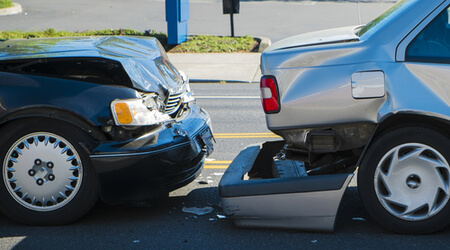
Rear-end accidents or rear-end collisions occur when a driver hits the back of the vehicle directly in front of him or her. Rear-end collisions typically occur as a result of tailgating or following too closely or because the driver in the front vehicle stopped short. Some chain-reaction rear-end accidents can involve many vehicles.
If you have been involved in a rear-end collision in South Carolina, you may have suffered a variety of injuries, depending on the circumstances of the accident. It is important that the person responsible for the injuries should pay the costs associated with them.
In order to get help obtaining compensation, call Joye Law Firm today or fill out our online form. Our South Carolina car accident lawyers represent clients in Charleston, Myrtle Beach, Florence, Richland County, Orangeburg, Columbia, North Charleston, Mount Pleasant, Summerville and the Horry County communities of Conway and North Myrtle Beach. Let us put that experience to work for you.
Causes of Rear-End Accidents
Rear-end collisions can be caused by a number of different situations. For example, a rear-end collision may involve:
- A driver who follows too closely – South Carolina law requires that drivers maintain a safe following distance. According to the South Carolina DMV, drivers should typically maintain a three- to four-second minimum following distance under optimal conditions and should maintain a long distance in bad weather or heavy traffic. To determine the following distance, the SC DMV recommends selecting a fixed point, such as a sign, and watch the vehicle in front as it passes the fixed point. You then count the number of seconds until you pass the same point. Remember, the faster you are going, the more time it will take to stop your vehicle.
- Driver inattention — A distracted driver may not notice that the vehicle in front has stopped for a stop sign, traffic congestion, a pedestrian or for any other reason. If the distracted driver doesn’t notice that the car in front has stopped, he or she is likely to drive into the back of that vehicle, sometimes without ever touching the brakes.
- Sudden stops — If the vehicle in the front stops short or stops suddenly, then the driver in the back may be unable to step on the brakes in time and may crash into the rear.
In most cases, the driver who is following the lead car will be considered at fault or responsible for the accident. This means that the driver in the rear may be required to pay damages to the driver in the front. This is generally true even if the driver in front stops short because the responsibility is on the driver in the second car to maintain a safe following distance. However, in some cases, the drivers may share fault and the front driver may be partially responsible — and partially liable — for causing a rear-end collision and resulting injuries. In some instances, a defect in the car, such as faulty brakes, could result in a car manufacturer, mechanic or other third party being held responsible for the accident.
Injuries from Rear-End Collisions
Rear-end collisions can cause a wide variety of injuries, including death in the worst-case scenarios.
Whiplash is a very common injury that occurs in rear-end accidents and that can happen at even moderate or low speeds. Whiplash occurs because the neck muscles and ligaments are strained when the neck moves beyond its normal range of motion. Whiplash has a number of symptoms, including serious neck, shoulder, and back pain. Limited motion due to whiplash can also result in chronic or permanent disability.
Contact Our South Carolina Rear-End Collision Lawyers Today
If you’ve been seriously injured in a South Carolina car accident, you need lawyers you can trust to obtain the money and benefits you deserve. At Joye Law Firm, our South Carolina auto accident attorneys have over 300 years of combined experience helping injured victims after rear-end collisions. For a no-cost consultation, call Joye Law Firm or fill out our online case evaluation form.

































